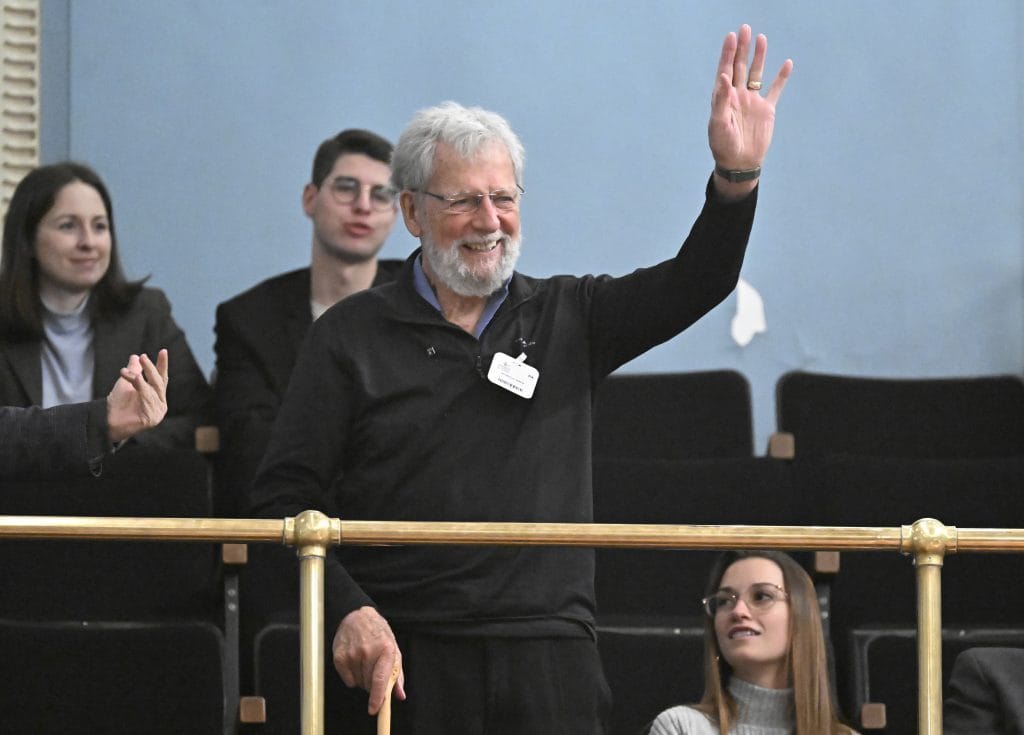Rodrigue Biron, one of the last leaders of the now-defunct Union Nationale who later became a minister under René Lévesque’s government, has died. He was 90 years old.
The businessman from the Chaudière-Appalaches region came to politics “by accident.” Encouraged by others, he attempted to get himself elected leader of the Union Nationale, which he succeeded in doing in 1976 against all odds.
Biron then won his election in Lotbinière and became leader of the third opposition.
Related:
In 1980, he left the National Union because of the independence referendum that was to be held that year and subsequently joined the “yes” camp.
He joined the Parti Québécois and after the 1981 elections, he was promoted to Minister of Industry, Trade and Tourism, which reflected his business qualifications.
Biron held this position until the defeat of the Parti Québécois in 1985.
After this stint in politics, he returned to business. He later attempted a political comeback as leader of the Bloc Québécois, but finished third, behind Yves Duhaime and Gilles Duceppe, who was elected.
Several politicians reacted on Tuesday following the announcement of Rodrigue Biron’s death.
“I was deeply moved to learn of the passing of Rodrigue Biron,” wrote Health Minister Christian Dubé on X. “I had the chance to work alongside him in business, and I remember him as a generous and passionate man about Quebec.”
The leader of the Parti Québécois, Paul Saint-Pierre Plamondon, also reacted to X, describing him as a “man of great kindness, generous with his time.”
“His political legacy reminds us that people on both the right and the left can come together on the fundamentals of our future in the grand coalition that is the Parti Québécois,” added the leader of the Parti Québécois. “He reminds us that loyalty to the interests of Quebec must take precedence over everything else.”
A neophyte who made his place
Born on Sept. 8, 1934, Rodrigue Biron began his professional life in the family business, Fonderie Sainte-Croix, and he would go on to manage other foundries in Rivière-du-Loup, Calgary and Oakville.
It was in the early 1970s that he began his political career, becoming mayor of Sainte-Croix.
Encouraged by his relatives, he decided to take things to another level, by running for the leadership of the National Union in an attempt to reinvigorate Maurice Duplessis’s party.
“I presented myself as a candidate with almost no program at the time,” he admitted on the program Mémoires de députés in 2008.
“I had no roots in the National Union; I didn’t know these people.”
Despite his apparent parachute drop, the neophyte wins the race.
What does he owe his victory to? To the Knights of Columbus, he answered without hesitation on the show “Tête à tête” broadcast on CPAC in 2007. “I knew people everywhere. Everywhere, everywhere.”
He became involved with the organization at the age of 18. In December 2023, he celebrated his 71st anniversary as a member at the age of 89.
In 1976, he was elected in Lotbinière under the banner of the Union Nationale, an election that would be won by René Lévesque’s Parti Québécois. Despite the defeat, Maurice Duplessis’s former party still managed to obtain 20 per cent of the vote and 11 members of parliament.
“I was satisfied, we hadn’t had time to organize ourselves properly (…) You have to remember that the National Union had been completely destroyed in the previous election,” he confided to host Pierre Donais on CPAC.
Transition to the Parti Québécois
It was the 1980 referendum that would cause a break with his party, since it was necessary to choose a side. This former autonomist proposed that the party give everyone freedom of conscience to choose, but he decided to resign when it came to imposing a “no” vote.
As a matter of principle, he said, he resigned and decided to campaign for the “yes” vote as a new independent MNA.
Shortly after the defeat of the “yes” vote, he said he was approached by Premier Lévesque to join the PQ. He made the switch and was re-elected under the party’s banner in 1981.
He assumed the role of Minister of Industry, Trade and Tourism under René Lévesque, then under Pierre-Marc Johnson, where, he acknowledged, he “pampered” small and medium-sized businesses.
“It’s not large companies that create jobs, it’s SMEs that create jobs,” he said in 2008.
In 1985, he was swept away by the defeat of the Parti Québécois and lost his seat.
Business and a return to politics
Far from being embittered by his defeat, which he attributes to a “wave against the Parti Québécois,” Biron then returned to the business world, while maintaining ties with PQ leaders Jacques Parizeau, Lucien Bouchard and Bernard Landry.
In the wake of the 1995 referendum, the former minister attempted a comeback, this time on the federal scene, to lead the Bloc Québécois.
He finished third in the race, behind his former ministerial colleague Yves Duhaime and Gilles Duceppe, who became leader.
In an interview with CPAC in 2007, he still believed in the need for sovereignty and in 2014, he recommended to François Legault, then simply leader of the Coalition avenir Québec, to recognize the “constitutional problem.”
“The weakness of François’ argument is that he says this problem doesn’t exist. I think it does. We have to recognize it,” he told the “Journal de Montréal.”
–This report by La Presse Canadienne was translated by CityNews



